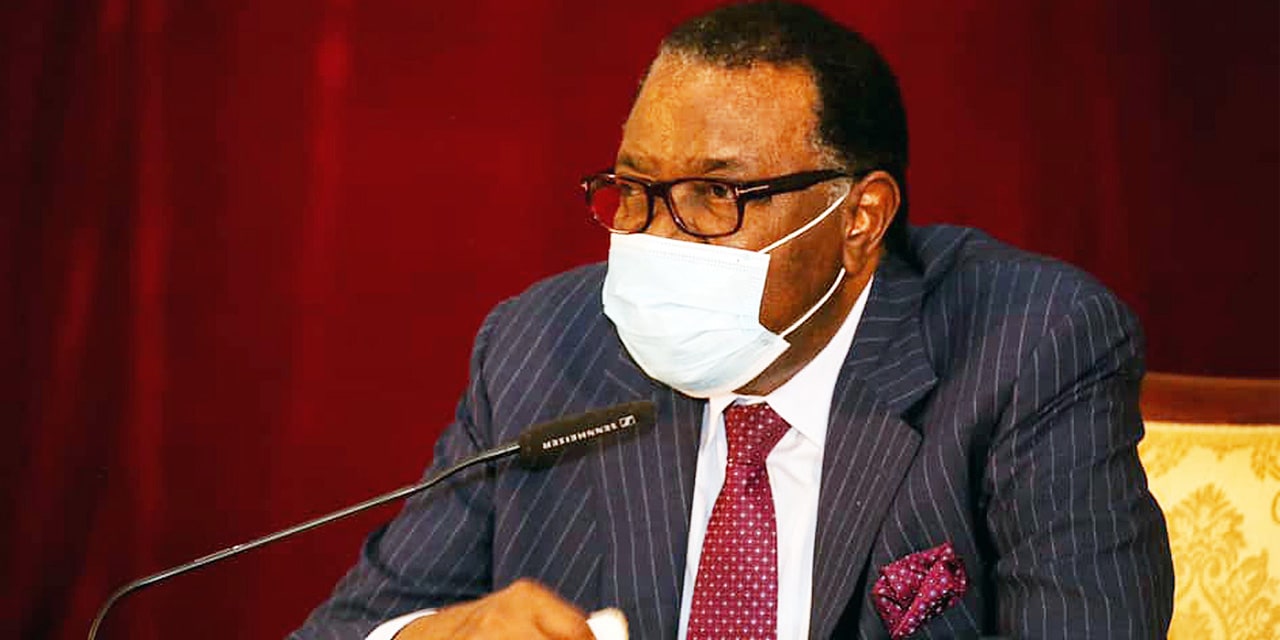Andrew Kathindi
President Hage Geingob has threatened to reinstitute another State of Emergency as soon as next week if the public does not adhere to the current measures and COVID-19 cases continue to rise.
This comes as Geingob on Wednesday introduced new measures to curb the alarming rise of COVID-19 cases.
The president and the Center of Disease Control (CDC) earlier this month confirmed that Namibia is currently facing a second wave of the pandemic.
“If you misbehave, I may even next week come back and declare a State of Emergency. That power I have. I am warning you. So, don’t guess when I call a meeting, ‘is he going to declare it?’ When I see there is a problem, I will declare it, just like that. It’s for our own safety,” the president declared.
Geingob said that he had weighed different options on the best way forward to manage the second wave of the pandemic that has caused increased infections, hospitalisations and death totals.
“We were debating it. The pros and cons, whether we lock down Windhoek, the whole country or declare state of emergency, which, I warn, I can come back anytime and do, because I have the power to declare it for seven days in absence of the parliament.”
The President said he settled on the current measures after looking at the possible economic consequences of a lockdown. The economy was in recession prior to the first March 2020 State of Emergency and lockdown. As things have eased, businesses are only sluggishly reviving, with some sectors not set to return to 2019 profitability until 2022. Job losses because of the first national lockdown are in the tens of thousands, if not more (when considering the vast informal economy). Business have closed or reduced at an alarming rate, people are still on half salaries, cars and homes are being repossessed by banks and school fees cannot be paid by many.
Another State of Emergency or lockdown could possibly permanently destroy entire swaths of the Namibian economy and the resulting social disasters already underway would be exacerbated to levels not seen before in Namibia. The president and the other decision-makers on this point are aware of these realities.
Among the new list of restrictions, the number of public gatherings has been reduced from the current limit of 200, to a maximum of 50 persons indoors and a maximum of 100 persons outdoors, at a time.
Enforcement of the correct wearing of facemasks in public places will also be intensified, while bars, nightclubs, casinos and all restaurants must close at 22:00 (previously set at midnight), Monday to Sunday. All indoor dining tables to be arranged two meters apart.
Minister of Justice Yvonne Dausab said the state would monitor adherence and that the Minister of Health and Social Services, Kalumbi Shangula, has broad powers under Section 29 of the Public and Environmental Health Act to decree more restrictive measures.
“Under that Act, if in the next 14 days, there are indications that cases are going up, the Minister can actually introduce measures such as indicating to people that they may not come into an affected area or they may not move around in that affected area. He also has the power to close down public entertainment places.”
She warned that should people continue to break COVID-19 regulations, and cases continue to rise, “The Minister has power to take additional measures to reduce the movement of people, which includes, when he considers necessary, prohibit the meeting, gathering and assembling of people or entertainment of any kind.”
This comes as the country on Wednesday recorded 363 cases of COVID-19, the highest number reported in a day since the disease broke out in the country on 13 March this year.
Of this number, Windhoek, which Shangula confirmed as a hotspot, recorded 218.
“Today we are reporting 152 hospitalized confirmed cases and 26 who are in intensive care units (ICUs). Khomas region has 57.9 percent and 84.6 percent of hospitalized confirmed cases and ICU cases respectively.”
Meanwhile safety Minister Frans Kapofi has said that a directive by police Inspector General, Sebastian Ndeitunga to reissue breathalyzers has been set aside.
“We have to be mindful of that. The breathalyzer we currently utilise might be a source of infection. We’ll have to look at that,” told Windhoek Observer.
The country has to date recorded 17,276 and 164 total deaths.




